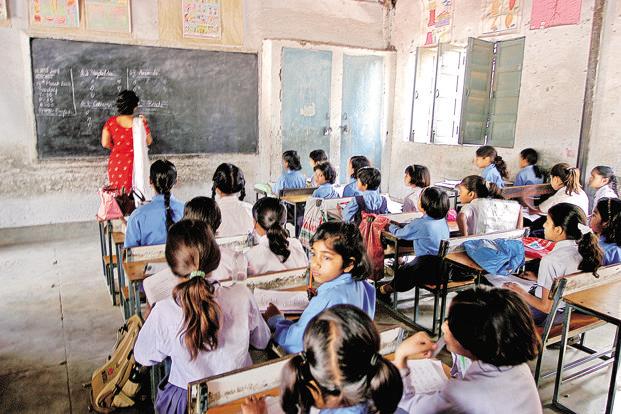
New Delhi: In a decision aimed at bringing together all school education-related schemes, the National Democratic Alliance (NDA) government on Wednesday approved an integrated school education scheme that will subsume Sarva Shiksha Abhiyan (SSA), Rashtriya Madhyamik Shiksha Abhiyan (RMSA) and Teacher Education (TE) from 1 April.
The cabinet committee on economic affairs (CCEA) headed by Prime Minister Narendra Modi approved the integrated scheme with an estimated allocation of Rs75,000 crore over the next two years, which is a 20% increase over the current allocation.
Calling it a “holistic approach to education”, the government said it will lead to “an integrated administration looking at school as a continuum”.
An official statement explained that the integrated scheme seeks to “ensure inclusive and equitable quality education from nursery to senior secondary stage in accordance with the Sustainable Development Goal for Education”.
The government said that the scheme gives flexibility to the “states and union territories to plan and prioritize their interventions within the scheme’s norms and the overall resource envelope available to them”.
“It will help improve the transition rates across the various levels of school education and aid in promoting universal access to children to complete school education,” the statement added.
Listing out other benefits, the government said it would lead to inclusion of senior secondary levels and pre-school levels in support for school education for the first time, focus on strengthening teacher education institutions, enhance use of digital technology through smart classrooms and digital boards, improve the quality of infrastructure in government schools and support “Khelo India”.
The CCEA also approved continuation of a credit guarantee fund for education loans, which would also increase the ceiling of eligible loan amounts from the existing Rs4 lakh to Rs7.5 lakh. “This will provide education loans to 10 lakh students,” the statement explained.
Meanwhile, on the jobs and skills front, CCEA gave the go-ahead for expanding the scope of a social safety net meant for informal workers and cleared a planned restructuring of the National Skill Development Corporation. Under the Pradhan Mantri Rojgar Protsahan Yojana, as per the statement, the government will now take care of the entire employer contribution to social security schemes meant for new formal employees for a period of three years from the date of joining.
Earlier, the government had only reimbursed a part of the employer contribution. The move is expected to bring in more informal workers into the formal workforce.
In another decision, the cabinet approved amendments to the controversial National Medical Commission (NMC) Bill 2017, removing a provision dealing with a bridge course for AYUSH practitioners to practice modern medicine to a limited extent.
It also approved a common final MBBS exam to be held across the country, one that would also serve as an exit test as well as a screening test for doctors with foreign medical qualifications looking to practice in India.
The CCEA allowed exports of all varieties of edible oils except mustard oil, a move the government said will provide additional marketing avenues and better price realisation for domestic farmers.
The cabinet also approved an MoU between India and the UK for combating international criminality and tackling serious organised crime.
[“Source-livemint”]
